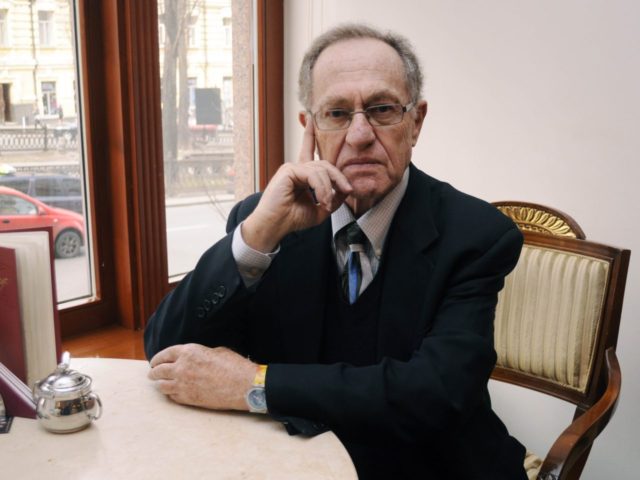Harvard Law School professor emeritus Alan Dershowitz criticized House Democrats on Wednesday for voting to hold former White House chief of staff Mark Meadows in contempt of Congress before courts had ruled on his privilege claims.
Meadows had been subpoenaed to provide evidence to the January 6 committee, and handed over some documents before withholding others that former President Donald Trump has said are covered by executive privilege and cannot be used.
The questions of whether executive privilege by a former president can still apply, and what the limits of executive privilege are, remain unresolved, and both Meadows and former Trump adviser Stephen K. Bannon have asked the courts to rule.
But House Democrats have voted to hold both in contempt of Congress and refer them to the Department of Justice (DOJ) for prosecution — which the DOJ has already undertaken with regard to Bannon, despite historically ignoring such referrals.
In an essay at the Gatestone Institute, Dershowitz argues that a privilege exerted by a former president should remain valid — and that in any case, contempt charges should not apply before the courts rule. Dershowitz argues (original emphasis):
In the absence of a definitive judicial decision to the contrary, former chief of staff Mark Meadows would seem to be required to accept former President Trump’s claim of executive privilege. Were he now to divulge communications that the courts ultimately held were privileged, the damage would be irremediable. The cat could not be returned to the constitutional bag. On the other hand, if he does not now disclose and the courts ruled that he must, the only harm would be some delay. The balance of harms clearly favors non-disclosure at this time.
That is precisely why it is so outrageous for the committee now to be seeking the criminal indictment of Meadows for refusing to disclose material that may well be constitutionally privileged. They should seek to have the courts rule firston the constitutional issue, and if Meadows then refuses to comply with a judicial order, they can seek criminal penalties. This chronology is especially required because Meadows has said that he would comply with court orders.
Seeking a court order first is also required by the constitutionally mandated separation of powers. Congress cannot simply compel the executive to bow to its will when there is a conflict between the two elected branches, the third branch — the judiciary — decide who is correct under the constitution.
Finally, criminal indictments should never be used to determine what the law is. It should only be used against individuals who know that they are violating existing law that is already clear.
Read Dershowitz’s full essay here.
Dershowitz represented Trump during his first impeachment trial, when one of the articles of impeachment also sought to punish the president for turning to the courts to resolve an unclear issue of legislative authority over executive testimony.
Meadows is also suing the January 6 committee, arguing it is violating the Constitution and the law, and noting that it has broken the rules set by its own enabling House resolution, making its subpoenas invalid.
Joel B. Pollak is Senior Editor-at-Large at Breitbart News and the host of Breitbart News Sunday on Sirius XM Patriot on Sunday evenings from 7 p.m. to 10 p.m. ET (4 p.m. to 7 p.m. PT). He is the author of the recent e-book, Neither Free nor Fair: The 2020 U.S. Presidential Election. His recent book, RED NOVEMBER, tells the story of the 2020 Democratic presidential primary from a conservative perspective. He is a winner of the 2018 Robert Novak Journalism Alumni Fellowship. Follow him on Twitter at @joelpollak.

COMMENTS
Please let us know if you're having issues with commenting.